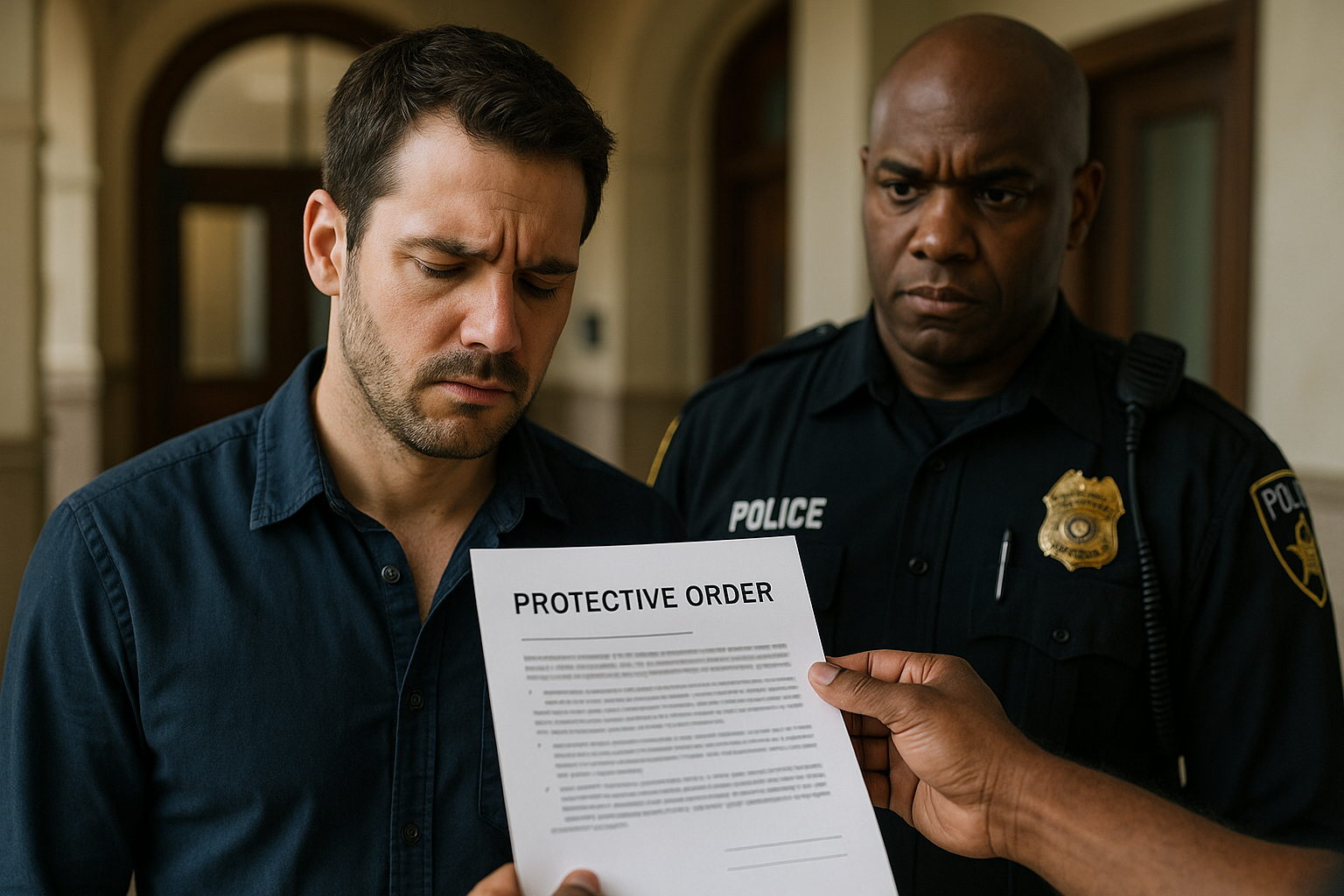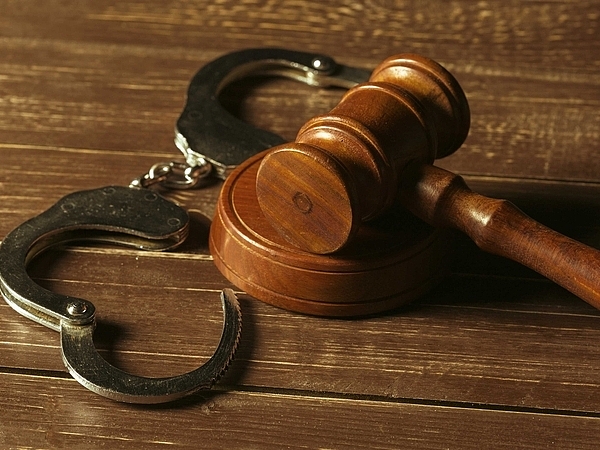What Types Of Evidence Can Be Challenged In A Texas Criminal Case?
In a criminal defense case in Texas, various types of evidence can be challenged. These pieces of evidence can play a significant role in determining the outcome of a trial, making it essential for defense attorneys to carefully examine and evaluate them.
Here are some examples of evidence that can be challenged in a Texas criminal defense case:
- Physical Evidence
Physical evidence refers to any tangible objects, such as weapons, drugs, or clothing that may have been present at the scene of the crime. This type of evidence is often considered very strong and can greatly influence a jury’s decision. However, physical evidence can also be challenged in various ways. For example, an expert witness could testify that the item was not related to the crime or that there is a possibility of contamination, casting doubt on the validity of the evidence.
- Testimony
Testimony is one of the most crucial forms of evidence in a criminal case. It refers to statements made by witnesses or individuals involved in the crime. However, testimonies can also be challenged and discredited. Defense attorneys may question the credibility or reliability of a witness, bring up any biases or motives they may have, or even present contradictory evidence to challenge the witness’s version of events.
- Confessions
Confessions are statements made by a defendant admitting their involvement in the crime. While they may seem like strong evidence against a defendant, confessions can also be challenged. Defense attorneys can argue that the confession was coerced, obtained under duress, or that the defendant lacked mental capacity at the time of giving the confession. They may also argue that the confession was not recorded accurately or that it was taken out of context.
- Eyewitness Identification
Eyewitness identification is often considered to be very persuasive evidence in a criminal case. However, studies have shown it can be unreliable due to factors such as stress, faulty memory, or biases. Defense attorneys can challenge eyewitness identification by presenting evidence that the witness had poor visibility, was under the influence of drugs or alcohol, or may have been influenced by suggestive techniques used by law enforcement.
- Forensic Evidence
Forensic evidence refers to any scientific tests or analysis that are used to link a defendant to a crime. This can include DNA analysis, fingerprinting, or ballistics testing. While this type of evidence can seem strong and conclusive, it can also be challenged by defense attorneys who may question the accuracy or reliability of the tests or argue that there was mishandling of evidence.
These are just some examples of the types of evidence that can be challenged in a Texas criminal defense case. It is important for defense attorneys to thoroughly evaluate and challenge any evidence presented by the prosecution to ensure a fair trial for their clients.
Ultimately, it is the responsibility of the prosecution to prove beyond a reasonable doubt that the defendant is guilty, and challenging evidence can play a crucial role in achieving this goal. So, understanding these different types of evidence and how they can be challenged is essential for a successful criminal defense in Texas.
In conclusion, it is important for defense attorneys to carefully review all evidence and utilize various tactics to challenge their validity or credibility, ultimately working towards ensuring a fair trial for their clients. It is through this process that justice can be achieved in the Texas criminal justice system.
How Can I Challenge The Admissibility Of Evidence In Texas?
If you are facing criminal charges in Texas, it is crucial to have a defense attorney who can effectively challenge the admissibility of evidence. Here are some steps that your attorney may take to achieve this:
- File a Motion to Suppress Evidence: Your defense attorney can file a motion to suppress certain pieces of evidence if they believe it was obtained illegally or in violation of your constitutional rights. This can include evidence obtained through illegal search and seizures or violation of Miranda rights.
- Cross-examination: During the trial, defense attorneys can cross-examine witnesses and challenge their testimony and any evidence presented by the prosecution.
- Objecting in Court: If the prosecution presents evidence that is deemed irrelevant, hearsay, or prejudicial, the defense attorney can object to its admissibility.
- Presenting Contradictory Evidence: Defense attorneys may present their own evidence to contradict or challenge the prosecution’s evidence, such as expert witnesses or alibis.
- Challenging Witness Credibility: As mentioned earlier, defense attorneys can also challenge the credibility of witnesses through cross-examination and presenting contradictory evidence.
Overall, challenging the admissibility of evidence in a Texas criminal case requires thorough preparation and knowledge of legal tactics. It is crucial to have an experienced defense attorney who can effectively utilize these strategies to protect your rights and ensure a fair trial.
If you are facing criminal charges in Texas, it is important to seek legal counsel immediately to begin building your defense. Remember, the burden of proof lies with the prosecution, and a skilled defense attorney can help tip the scales in your favor by challenging the admissibility of evidence and working towards a favorable outcome for your case.
Do not hesitate to seek legal assistance and challenge any evidence that may be used against you in court. Your freedom is at stake, and it is crucial to have a strong defense team on your side.
With the right strategies and legal knowledge, you can effectively challenge evidence in your criminal trial and ultimately achieve justice in the Texas legal system. So, be proactive in building your defense and do not hesitate to challenge any evidence that may be presented against you.
What Is A Motion To Suppress Evidence In Texas?
A motion to suppress evidence is a legal request made by the defense that seeks to exclude certain pieces of evidence from being presented in court. The purpose of this motion is to challenge the admissibility or reliability of the evidence, and if successful, it can significantly weaken the prosecution’s case. This motion may be filed before or during trial, and it is up to the judge to make a ruling on its admissibility.
To file a motion to suppress evidence in Texas, the defense must provide specific legal grounds for why the evidence should be excluded. This may include violations of constitutional rights, illegal search and seizures, or unreliable witness testimony. If the judge determines that there is sufficient reason to exclude the evidence, it will not be presented in court, and the prosecution may have a weaker case as a result.
In Texas, motions to suppress evidence can be complex and require extensive legal knowledge and preparation. Therefore, it is important to work with a skilled defense attorney who can effectively utilize this strategy in your criminal defense. The ability to challenge evidence and potentially have it excluded from trial can greatly impact the outcome of your case, making it a crucial tactic in Texas criminal trials.
In conclusion, motions to suppress evidence play a significant role in the criminal justice system by allowing the defense to challenge the admissibility of evidence and ensure a fair trial for their clients. By understanding the legal definition and strategies involved in suppressing evidence in Texas, individuals can better protect their rights and achieve justice in their criminal defense.
So, do not hesitate to seek legal assistance if you are facing criminal charges and believe that the evidence against you may be inadmissible. Your freedom and future could depend on it.
With the right defense team by your side, you can effectively challenge evidence and work towards a positive outcome for your case in the Texas courts. This is why it is crucial to have a strong and knowledgeable defense attorney by your side during any criminal trial in Texas.
By understanding the legal definition of a motion to suppress evidence and how it can be utilized, individuals can take proactive steps toward protecting their rights and achieving justice in the Texas criminal justice system.
Can I Challenge The Credibility Of Witnesses Presented By The Prosecution?
Yes, as a criminal defendant, you have the right to challenge the credibility of witnesses presented by the prosecution in your trial. This can be done through various legal strategies and tactics, such as cross-examination, presenting contradictory evidence, and objecting to witness testimony.
It is important to note that challenging witness credibility does not necessarily mean proving their testimony false. Instead, it involves raising doubt or providing alternative explanations for their statements and actions. This can weaken the prosecution’s case and potentially lead to a more favorable outcome for the defendant.
Cross-examination is one of the keyways in which defense attorneys can challenge witness credibility. During this process, defense attorneys can question witnesses and point out inconsistencies or contradictions in their testimony. The goal is to create doubt in the minds of the jurors and highlight any potential biases or motives the witness may have.
Another way to challenge witness credibility is by presenting contradictory evidence. This can involve bringing in expert witnesses who can provide an alternative interpretation or explanation for the evidence presented by the prosecution’s witnesses. Alibis, surveillance footage, and forensic evidence can also be utilized to contradict witness testimony.
Additionally, defense attorneys can object to witness testimony that they believe is unreliable or inadmissible. This may be based on legal grounds such as hearsay or lack of personal knowledge by the witness. If the judge sustains these objections, it can prevent certain evidence from being presented and potentially weaken the prosecution’s case.
Challenging the credibility of witnesses is a crucial aspect of a criminal defense strategy. By utilizing various legal tactics and strategies, defendants can weaken the prosecution’s case and potentially achieve a favorable outcome in their trial. It is important to work with an experienced defense attorney who has knowledge and expertise in this area to effectively challenge witness testimony and protect your rights in court.
Do not hesitate to seek legal assistance and fight for a fair trial in the Texas criminal justice system. So, be proactive and take the necessary steps to protect your rights as a criminal defendant in Texas. With the right defense strategies, you can challenge evidence and potentially achieve a positive outcome in your case.
The key is to work with a skilled defense attorney who can navigate the complexities of the criminal justice system and advocate for your best interests. Remember, you have the right to challenge witness credibility and defend yourself against any criminal charges brought against you in Texas.
How Can A Texas Criminal Attorney Assist Me In Challenging Evidence In My Criminal Trial?
A Texas criminal defense attorney can assist you in challenging evidence in your criminal trial by utilizing their legal knowledge and experience to strategize the most effective approach. They will thoroughly review all the evidence presented against you and determine which pieces may be challenged on legal grounds.
This can include filing motions to suppress evidence, cross-examining witnesses, presenting contradictory evidence, and objecting to unreliable or inadmissible testimony.
A skilled defense attorney will also have a deep understanding of Texas criminal law and how it applies to your case, allowing them to identify potential weaknesses in the prosecution’s evidence and build a strong defense strategy. They can also negotiate with prosecutors for plea deals or reduced charges if necessary.
Furthermore, a Texas criminal defense attorney knows how to navigate the court system and procedures to ensure your rights are protected throughout the trial. They will also keep you informed of any developments in your case and guide how to proceed.
In short, a Texas criminal defense attorney can play a crucial role in challenging evidence in your criminal trial and protecting your rights as a defendant. With their knowledge, experience, and dedication, they can help you achieve a favorable outcome and defend yourself against any criminal charges in the Texas courts.
A Texas criminal defense attorney plays an essential role in challenging evidence in their client’s criminal trial. They can utilize various legal strategies and tactics to challenge witness credibility, present contradictory evidence, and object to unreliable or inadmissible testimony.
With their knowledge of Texas criminal law and expertise in navigating the court system, they can assist individuals in protecting their rights and achieving a fair trial. So, if you are facing criminal charges in Texas, do not hesitate to seek legal assistance from a skilled and dedicated defense attorney who will advocate for your best interests.
‹ Back














